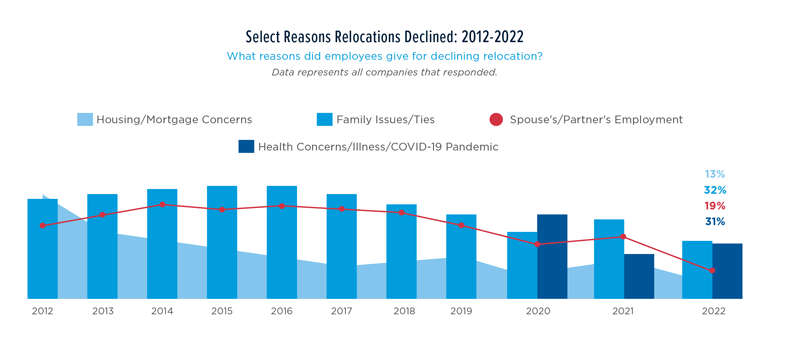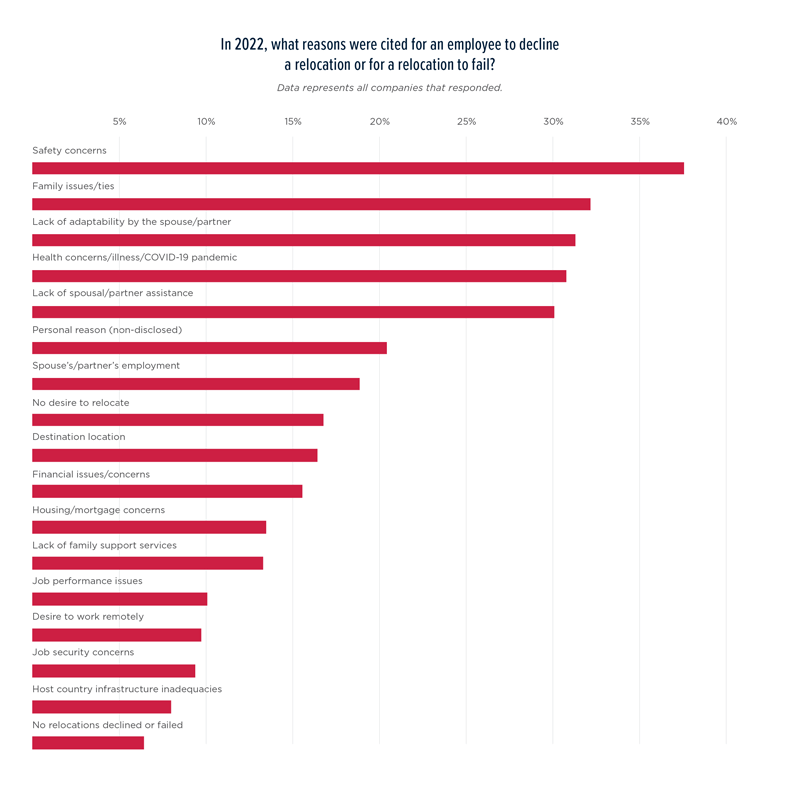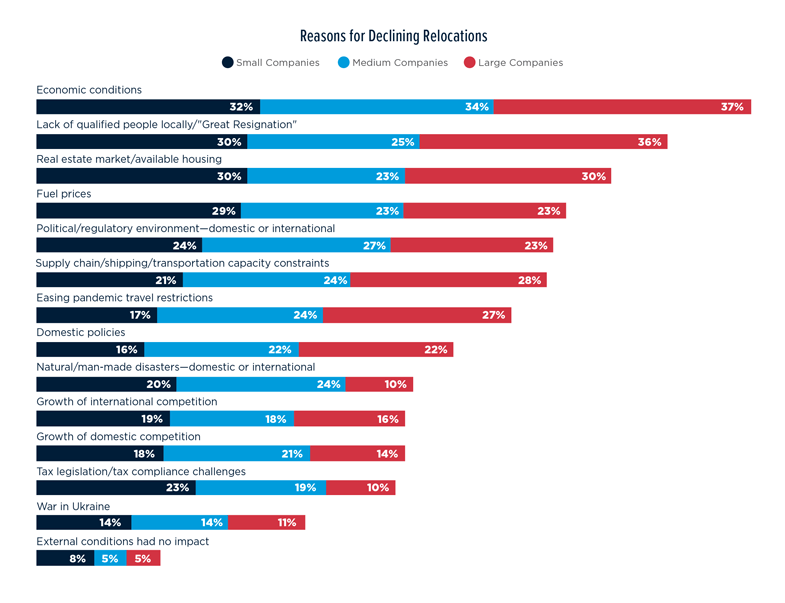FACTORS IMPACTING RELOCATION: EMPLOYEES
Reasons employees declined relocation indicated some surprising changes from 2021, with a higher emphasis on safety and health, as well as a lack of ability to relocate because of family:
- 37% - Safety concerns
- 32% - Family issues/ties
- 31% - Lack of adaptability by spouse/partner
- 31% - Health concerns/COVID-19 pandemic
- 30% - Lack of spousal/partner assistance



37% of companies cited safety concerns such as war, terrorism, and political unrest as reasons why employees declined relocations, an increase from 32% in 2021. This concern was the highest (43% of companies) for employees relocating nationally, the median (39% of companies) for regional relocations, and the lowest (30% of companies) for international relocation.
While respondents were not able to provide specification around what aspects of safety employees were most concerned about, a 2022 study of 19 countries conducted by the Pew Research Center suggests that global concern is a bit of everything, ranging from fears about climate change, infectious diseases, economics, international conflict, and social disruption (Poushter et al.).
About 1 in 3 companies reported that COVID-19 concerns were given as a reason for declined relocations in 2022, compared to about 1 in 4 companies in 2021. This may be tied to overall concerns of health/safety as previously stated, as well as other economic or household pressures such as family obligations. While it appears that companies have found adaptations to operations during the pandemic (including changes in workplace policy), and have seen revitalized financial performance, COVID-19 and other infectious diseases may still create apprehension for relocating employees and their families.
Around 1 in 3 companies reported relocations declined because of family issues/ties and lack of adaptability by a spouse or partner. This is a significant decrease from 2021, which may suggest that challenges created by COVID-19 (e.g., departure of the workplace due to childcare needs) may be abating for many households.
Around 1 in 3 companies cited economic conditions as having an impact on relocations. While specific financial concerns were reported less (e.g., cost of living, housing, financial challenges), it is still likely most households are reliant on dual incomes for day-to-day financial and familial wellbeing in a challenging economic environment. A reliance on a secondary income or in-home labor provided by a spouse or partner may make relocation an impossibility should it result in job loss for the trailing spouse/partner. For more information about assistance, see our Assistance Policies section.
